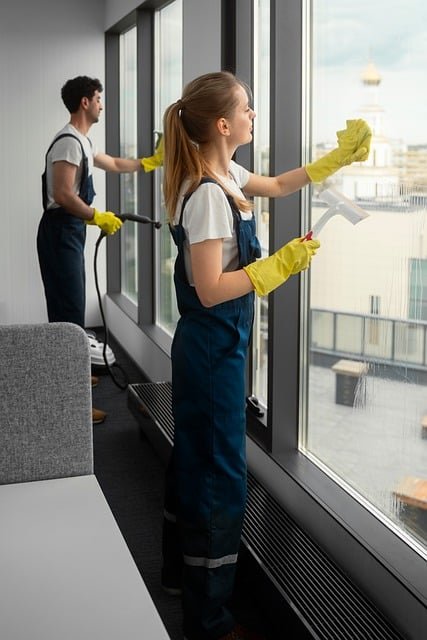Cleaning — a Stable Profession with Real Growth Opportunities
The cleaning profession has long been underestimated, yet it stands as one of the most resilient and accessible career paths available today. With consistent demand across residential, commercial, healthcare, and industrial sectors, cleaning offers stable employment, flexible schedules, and genuine opportunities for advancement. Whether you are seeking entry-level work or aiming to build a specialized career, the cleaning industry provides multiple pathways for professional development and financial security.

The cleaning industry is far more dynamic and structured than many people realize. It encompasses a wide range of roles, from residential housekeeping to specialized sanitation in hospitals, laboratories, and industrial facilities. As societies prioritize hygiene, environmental standards, and workplace safety, the need for skilled cleaning professionals continues to grow. This profession offers stability, accessibility, and clear pathways for those willing to develop their skills and pursue certifications.
Why Cleaning Remains in High Demand
Cleaning services are essential across virtually every sector of the economy. Offices, schools, hospitals, hotels, airports, and manufacturing plants all require regular maintenance to meet health regulations and operational standards. Unlike many industries that fluctuate with economic cycles, cleaning remains a constant necessity. Public health concerns, stricter sanitation protocols, and increased awareness of hygiene have further elevated the importance of professional cleaning services. Additionally, the aging population in many regions has increased demand for residential cleaning assistance, while busy professionals often seek help maintaining their homes. This consistent need translates into job security and steady employment opportunities for workers at all skill levels.
How to Start a Career in Cleaning
Entering the cleaning profession requires minimal formal education, making it accessible to a broad range of individuals. Most entry-level positions provide on-the-job training, teaching workers proper techniques, equipment use, and safety protocols. Many employers value reliability, attention to detail, and a strong work ethic over formal qualifications. However, obtaining certifications can significantly enhance employability and earning potential. Organizations in various countries offer training programs in areas such as infection control, hazardous material handling, and green cleaning practices. Some workers begin by joining established cleaning companies, while others start small independent operations, gradually building a client base. Networking, positive client reviews, and consistent quality work are key factors in establishing a successful cleaning career.
Career Development and Specialization
The cleaning industry offers numerous opportunities for advancement and specialization. Workers can progress from general cleaning roles to supervisory positions, managing teams and overseeing large facilities. Specialization areas include healthcare sanitation, where knowledge of infection prevention is critical, or industrial cleaning, which may involve working with heavy machinery and hazardous materials. Green cleaning, which focuses on environmentally friendly products and sustainable practices, has become increasingly popular and commands premium rates. Some professionals pursue certifications in carpet and upholstery care, window cleaning for high-rise buildings, or restoration services following water or fire damage. Each specialization requires additional training but opens doors to higher responsibility and better compensation. Entrepreneurial individuals may eventually establish their own cleaning businesses, hiring staff and expanding service offerings.
Work Structure and International Standards
Cleaning work varies significantly in structure depending on the employer and sector. Some positions are full-time with benefits, while others are part-time or contract-based, offering flexibility for workers balancing other responsibilities. Shift work is common, particularly in settings like hospitals and airports that operate around the clock. Many countries have established industry standards and certifications to ensure quality and safety. For example, organizations provide training in bloodborne pathogens, proper chemical handling, and ergonomic techniques to prevent injury. Internationally recognized standards help maintain consistency and professionalism across borders, making skills transferable for those who relocate. Understanding these standards and pursuing relevant certifications can distinguish committed professionals from casual workers.
Example of a Career Path
A typical career trajectory in the cleaning industry might begin with an entry-level position in a commercial office building, where a worker learns basic techniques and equipment operation. After gaining experience and demonstrating reliability, the individual could pursue certification in specialized areas such as floor care or infection control. This additional training might lead to a role in a healthcare facility, where higher standards and specialized knowledge are required. With several years of experience, the worker could advance to a supervisory role, overseeing a team and coordinating schedules. Eventually, some professionals choose to start their own cleaning businesses, contracting with multiple clients and managing employees. Others may specialize further, becoming consultants who advise organizations on sanitation protocols or sustainability practices. Each step in this progression builds on previous experience while opening new opportunities for growth and increased responsibility.
The cleaning profession offers a practical and stable career path with genuine potential for advancement. While it may not require extensive formal education, success depends on dedication, skill development, and a commitment to quality. As hygiene standards continue to evolve and demand for professional cleaning services grows, those who invest in their skills and pursue specialization will find rewarding opportunities. Whether seeking flexible work arrangements, stable employment, or entrepreneurial ventures, the cleaning industry provides a solid foundation for building a sustainable career.




